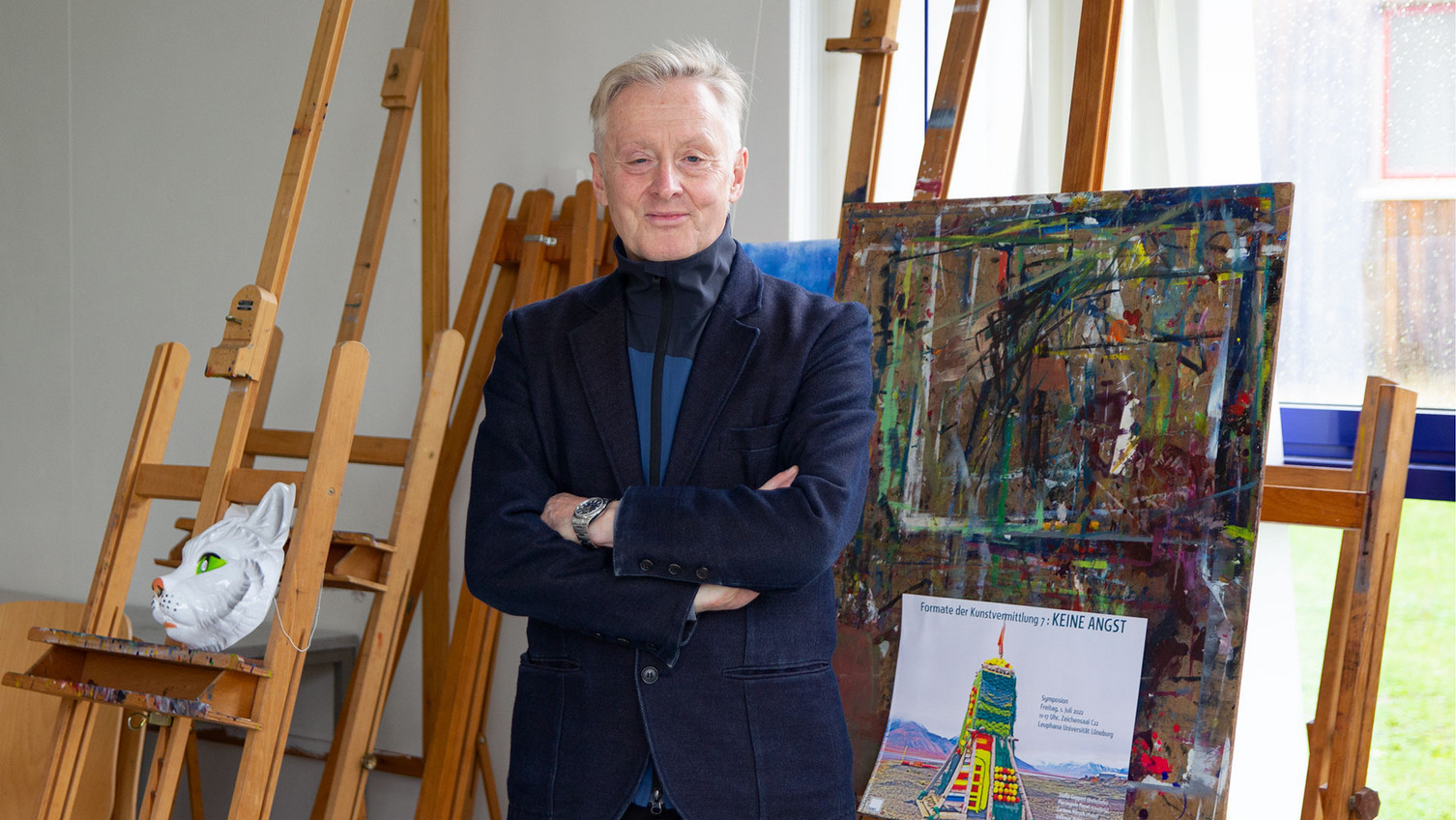Farewell: Professor Dr Pierangelo Maset - Frightening moments of freedom
2022-10-24 The professor of art and its didactics was essentially involved in the development of a contemporary art education paradigm. Now Pierangelo Maset is retiring and devoting himself to his artistic work as a photographer, author and sound artist.
Can art education be artistic? Until the 1990s, this idea was still considered radical. Art creation and art didactics were too strictly separated. Either someone was an artist or they talked about it: "Art education was a service event for didactic applications," explains Prof. Dr. Pierangelo Maset. Yet art in particular is an important tool of expression for children and adolescents in their various stages of development. "Good art teaching succeeds in opening up a platform for children and young people to express themselves and communicate. Ideally, important impulses come from the children and young people themselves. I am an advocate of difference education, which makes it clear: I may come from a different cultural sphere as a teacher, but maybe there is something that interests you because you don't know it yet."
It was art itself, of all things, that brought about the paradigm shift in art education in the 1990s: "Everyone is an artist", Joseph Beuys proclaimed early on and coined the concept of social sculpture: everyone can create and change society with their art. "Lüneburg played an important role in the development of artistic art education, for example with the context art created in the Kunstraum," reports Pierangelo Maset. Roger M. Buergel, director of documenta 12, realised exhibitions in the Kunstraum. Maset brought many artists to Leuphana University Lüneburg as lecturers: "We understand didactics from art," explains the scientist.
The creative process is one side: "Art doesn't work without theory. Teacher training needs a sound professional education. We live in a world in which knowledge formation continues to grow. The subject matter cannot be dispensed with. Texts by Kant, Adorno or Bourdieu and Haraway, for example, absolutely belong in the curriculum," explains Pierangelo Maset. The outgoing professor brought both professional training with him in order to do justice to both theory and practice: Pierangelo Maset studied art/visual communication, philosophy, English and sociology in Kassel, Göttingen, Berlin and Hamburg. He completed his doctorate and habilitation on aesthetic education. Since the end of the 1970s, he has been represented at exhibitions, given readings and organised performances. In the 1980s he released several records with different bands such as Exkurs, Modern Entertainment and Dr. Misch (this group is considered the first German RAP band). Maset was also a co-founder of the HYDE Kartell in Berlin. He publishes in the fields of art/ aesthetic education/ aesthetics/ art education and has written three novels, of which "Laura oder die Tücken der Kunst" was nominated for the German Book Prize.
Pierangelo Maset also worked as a teacher: "Art is about developing one's own position and creating independently. Teacher training in the subject of art therefore needs significantly more moments of freedom, which may also frighten some teachers. But this space is needed more than ever. After all, teachers are supposed to prepare children and young people for a free and democratic society, and the programming of lessons does not help here.

